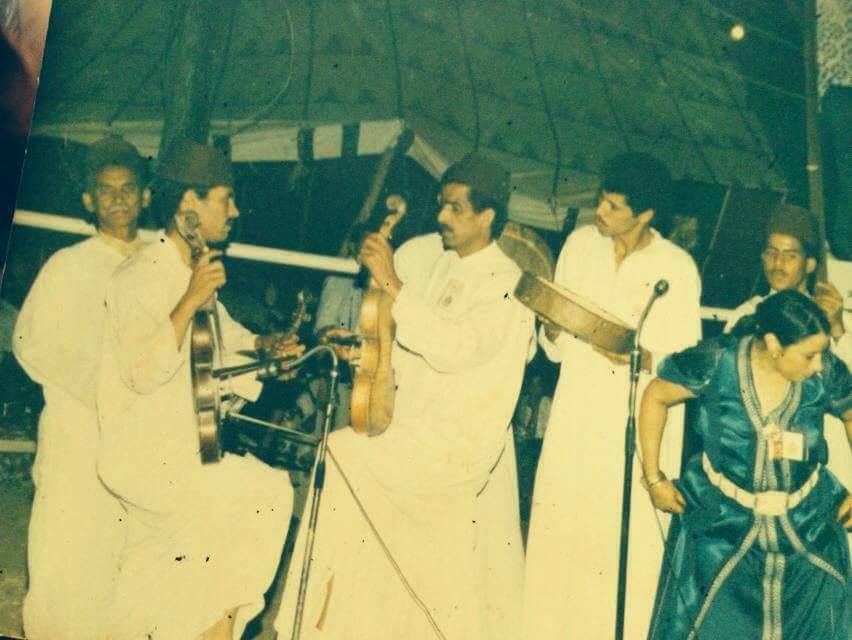Few do know how many Moroccans really respect this singer and his music. He’s the best aita musician in the popular style called ‘El-Za’ari’, or Aita Za’ariyah which started from the town called A-Rummani in Morocco.
The name Za’ari (زعري) came from an old tribe Aza’aeir; a Hilali creed who travelled to Morocco about 400 years ago. The style itself was first sung only by Cheikhat, or female master singers (e.g. Chiekha Haddah Ghobal, Chiekha Issfieya Bint Al-Maras, Chiekha Zahra, Chiekha Kharouba’a, Chiekha Al-Ne’ainn’ah), accompanied sometimes by some male Chieoukh (like Chiekh Boukhla and chiekh Bou-Khlach both of whom has frequently played with the latter chiekha as a duo, in addition to Chiekh Al-Moutcho and Mohammed Al-A’awak).
Today, it’s a well-documented style of mawrouth (old traditional Moroccan folkloric music) and gets played especially, around Rabbat in the town that bears the name of that tribe: Za’air/ Sala Zmour Za’air, and of course throughout the Middle-Atlas region along the Atlantic Ocean like in Achhaouia, Abdah, Dakhalla, all the way to Al-Houz.
Aita means in Moroccan-Arabic ‘the Shout’, or ‘Cry’: it’s a singing style that has certain poetry lines (called A’ouit), sung to call upon the tribe’s elders and their honour classified into three styles, mainly: Marsawi, Houzi, Melali, in addition to the Za’ari and the Hasbawi sub-styles and other less known ones like Khouribgi, Wardighi, Jilali, and the Sakkin.
The themes vary so much: from everyday’s life’s going-ons, love poems, beauty, nature, pain, hardships, etc. right into harsh, acerbic vituperation and invective poetic lines.
During the Za’ari singing itself, the chiekhat along with the chieoukh if present, compete in a mathematical music game called Hisab Al-Za’ari where the winning singer is one who finishes the serenading couplets (short rhyme-heavy poetic lines sung in a jalsah or ‘a sitting’) first and in tandem to the orchestra. It’s a very unique singing style that has witnessed a huge recording fame by of way of the l’Friquiaphone label in the 40’s and 50’s.
As for Hussein Khourbiga himself (Arabic: حسين خريبقي/ الحسين الخريبكي – Also spelled as Houcine Khourbgi), little is known about his life save from the fact that he was born in 1950 in Ain Bida in the Khazara Settat province, and died in a car accident. His early singing days started as a member of an aita orchestra playing his viola which was the way the original aita was played by the master chieoukh themselves.

